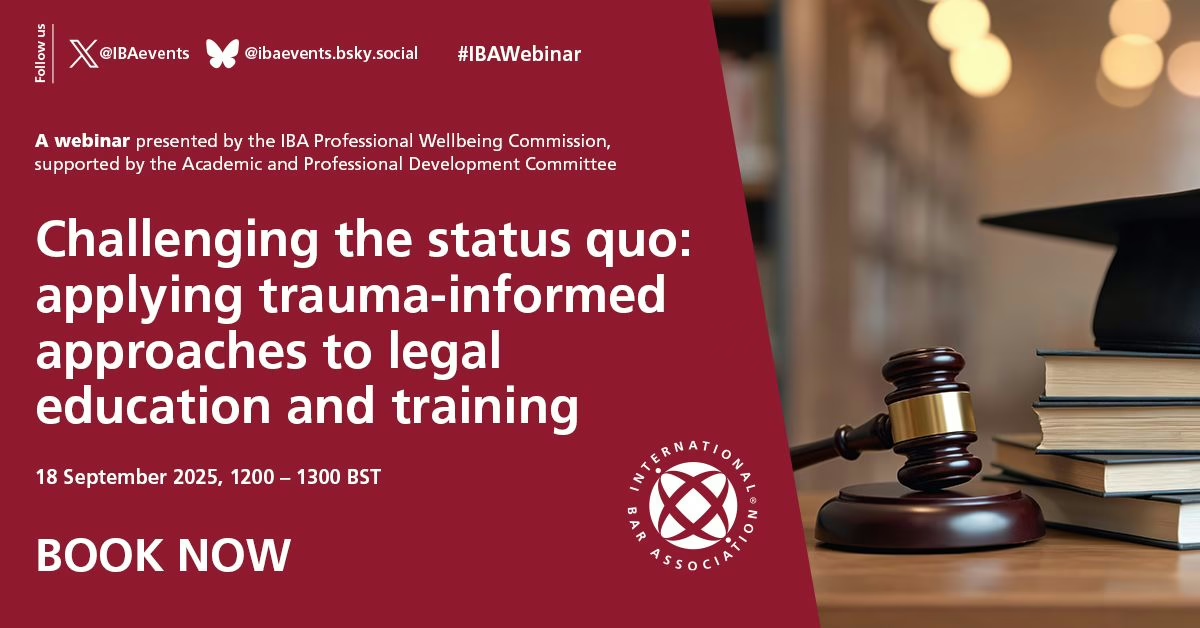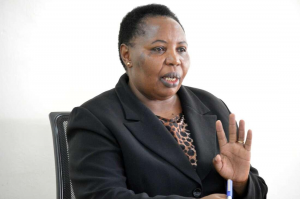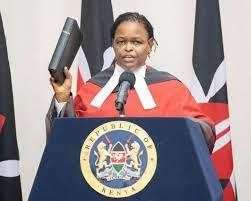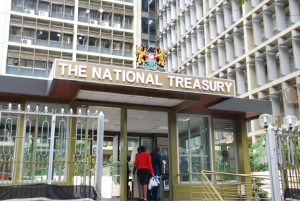Social media has been on a frenzy the past few weeks due to a twitter post that tried throwing jabs at a pupil for the mode of transport she chose. Since there was no backstory, netizens made assumptions and picked a side to battle for. This particularly sparked outrage from the young bar members as well as the current and prospective pupils. Further to this, one brave advocate set up a survey on google forms for pupils and advocates to indicate the kind of environments they work in and the firm or organisation. Survey Link Here
The survey unearthed the dark side of the legal profession especially the pupillage program with certain law firms getting scathing reviews as pupils opened up on their treatment and pay at the firms. From pupils earning more than advocates in certain firms to those earning nothing or given five thousand in envelopes like tithe. The worst part however was the treatment some pupils face with cases of sexual harassment, unequal treatment based on gender, unnecessarily hostile bosses and tasks outside their scope of learning such as cooking, clerical work, dish duty and others.
To properly address the issues raised in the survey we spoke to one of the advocates campaigning for healthy pupillage experiences, fair pay for pupils and overall giving pupils a wholesome learning experience, Sumaiyah Omar, an advocate of the High court of Kenya, Certified Professional Mediator, Associate Arbitrator and Data Protection Consultant, Technology law practitioner and Digital Campaigner.
What is the overall perception of pupils considering their placement at the bottom of the legal food chain?
The legal profession is known as a noble profession, however, there has been a lot of exploitation of Pupils and Interns in this sector. For non-lawyers reading this let me clarify the difference. Internship is simply a professional and practical learning to enable one gain experience in their field while pupillage is a mandatory vocational training program that forms part of the Kenya School of Law curriculum to give lawyers a practical training in preparation for their call to the bar. Please note that the former is not mandatory and can be voluntary.
Pupillage ideally is meant to encourage apprenticeship in the legal profession, by attaching an Advocate Trainee, who completed their degree and Post graduate diploma in Kenya School of Law and an advocate who had practised for more than five years, Known as a Pupil master (The name itself is problematic and its giving slavery, preferably we can change it to Pupillage supervisor).
In my opinion, the overall perception stems from the historical tradition of pupillage. Pupils would actually pay to be taken up by pupil masters for apprenticeship, and this is why many pupil supervisors see it as a favour. Over the years, this perception has slowly changed, but not to the level that pupils are treated well and remunerated.
I agree it’s a favour in the sense that you get first hand access to get tutelage, however I believe that pupils also have a unique value to add to law firms, furthermore is it humane to have someone work for you for 8 to 10 hours, with no lunch, transport and rent?
Just because the tradition entailed toxic practices, doesn’t mean that this trend should continue. There is space for so many young Lawyers to join this profession. The number of practising lawyers vs the number of Kenyans is still very low. Ensuring access to justice entails empowering more young lawyers, in healthy work environments.
Are the unique challenges faced across firms deliberate or just recurring mistakes? Having looked at all the forms there, the main issues seem to be bullying, underpayment, no job description or structured training, sexual harassment especially in male dominated firms and unhealthy work environments.
Yes, by design law firms entail long hours of work and high pressure and so it’s no shock that they automatically become toxic. However, re- evaluating how the work life balance and general attitude of the value of younger lawyers is key.
Pupillage is mandatory and without it, there is no admission or casually speaking, crossing over to the other side of the bar. This has led several employers to take advantage of that fact knowing that there is no option for those who want to be advocates in this country. It is this same factor that leads pupils to desperation and they end up doing work outside the scope of their training just to finish the six months and meet the requirements. This is tragically a system set-up to fail and sabotage a career before it even begins. Suffice to say, pupils are put at the mercy of their pupil masters and depending on how you behave, your career could be in jeopardy. Sadly, there is only one correct answer.
Further, some players have taken advantage of this and use it as a source of cheap labour. Mathematically speaking, it is cheaper to hire 10 pupils than hire one or maybe 2 really good advocates. This is a move that quite a number of firms have taken and whether it is right or not is very subjective.
How best can this situation be remedied? What is the role of the stakeholders like Kenya School of Law, Law Society of Kenya and other institutions in ensuring a better training environment?
At the moment, pupillage is only regulated by Kenya School of Law, and the regulation entails creation of a deed between the pupil and the pupil supervisor. Furthermore, KSL carries out a supervision of the pupil during the six months. The pupil is allowed to complain of any type of harassment (mostly sexual harassment claims seem to be taken seriously) and when the student does that, they are moved to a new pupillage station.
As much as that is a very commendable move by KSL, this however does not result in a form of accountability/ reprimand to the Pupil supervisor and most importantly, does not prevent any pupil from going there in the subsequent years.
Finally, so far LSK has not been actively involved in Pupillage supervision, an oversight if you ask me, since Pupil supervisors are only regulated by LSK. How is it possible to have had a whole pupillage program run for years without regulation of an essential part of the program (re, Pupil supervisors?)Two things come to mind; regulation or standardisation and accountability. There should be set rules that cut across all institutions seeking to take in pupils with properly set out job descriptions that are valuable to the training. On accountability, the pupil supervisor must be able to account for the training they have given their pupil to make sure we produce advocates that are properly trained and not made to cook tea or make lunch and fill their workbooks at the end of the day.
What is the effect of all these things in the overall perception of the profession and ultimately how it shapes the pupil’s career?
The effects of a toxic pupillage experience are numerous. Most of my colleagues who went through such experiences have actually left active practice of the law and ventured into alternative lawyering sectors. For those who stayed, they are unhappy as associates and are probably looking for an exit strategy. Furthermore, the effects to the Mental Health and physical health of the pupil is profound. Lastly, law is a career where networks and mentorship is essential, you always need to consult a colleague or a senior, a privilege that one gets robbed off from a toxic pupillage experience.
How can this transparency be used to better the profession?
Transparency is key in just starting a conversation towards reforms in the legal field. Now with transparency on how firms pay and treat pupils and associates, we can now re-evaluate what kind of regulations are needed. Is it time to regulate what minimum pay looks like? Create reporting mechanisms for any type of harassment?
From the digital campaign we had #CLEwi, the KSL class of 2020/2021 was able to advocate for concrete reforms with the Council of Education. Now, the CLE is responsive to all the issues raised by students in KSL. We can literally re-imagine and re-create our legal profession in any way we just have to be intentional and refuse to normalise mediocrity.
Summarily, pupils are merely advocates in waiting who have gone through proper training at the university and the Kenya School of Law. They are not cooks, personal assistants or office messengers. Times are changing and it is unfair to justify a toxic pupillage environment with the usual ‘that is what we also went through.’ Just because it happened to the past generations of lawyers does not mean it is right. I never was, never has been and never will be and it is refreshing to see pupils standing up and speaking up on this. It should end with us and the next generation of upcoming advocates should enjoy their training and love being in the profession.
A pupil master is a teacher and a teacher should ignite the flame and not kill the spark in their student.



















